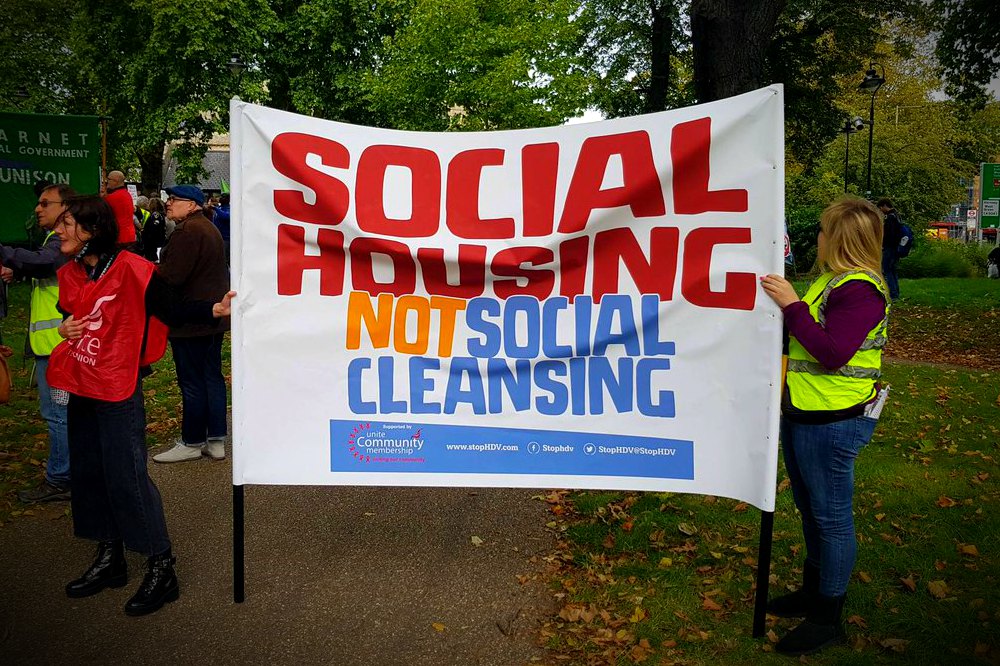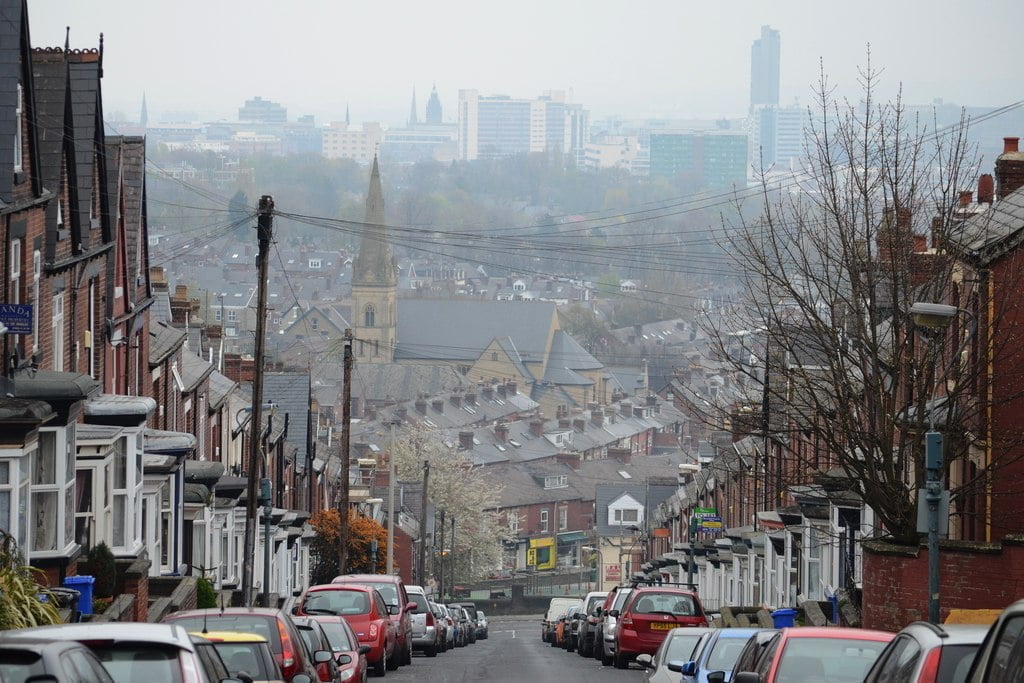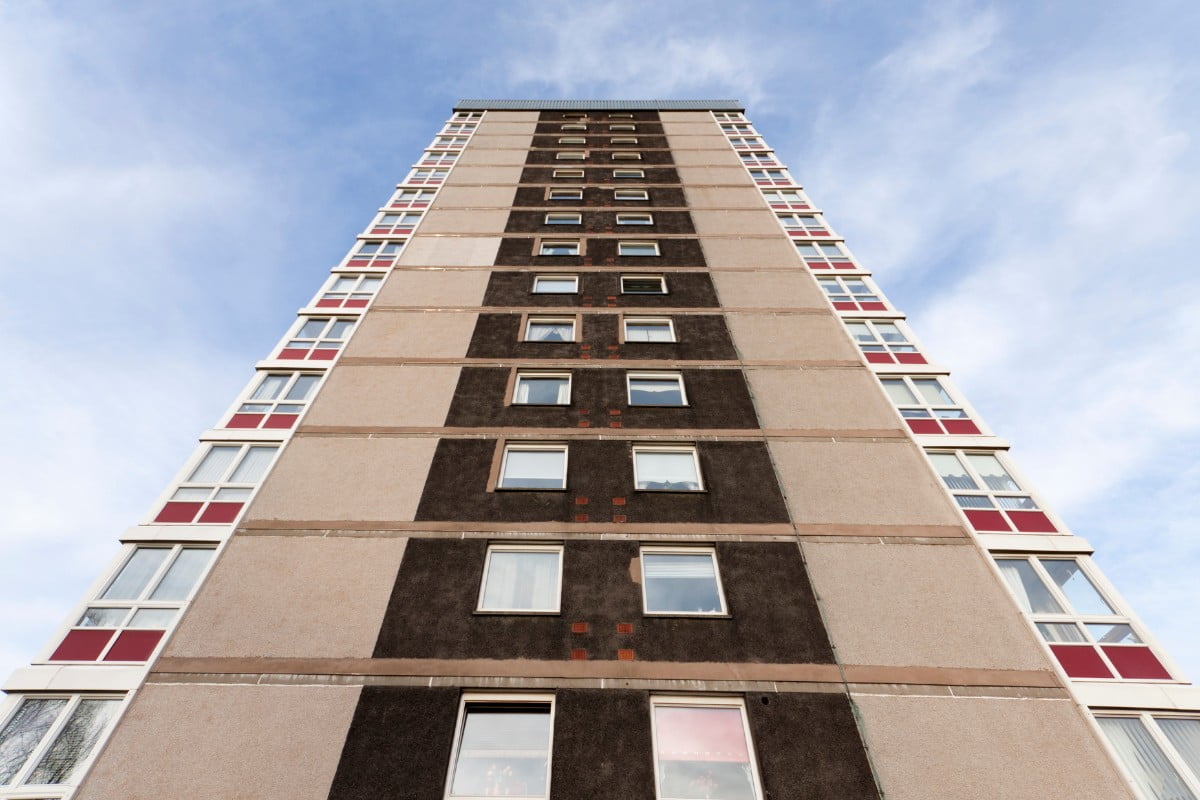Britain’s housing shortage has become a source of enormous profits for parasitic landlords and fat-cat developers. Labour needs a bold socialist programme to solve this crisis.
Last week, Sheffield City Council announced that they will build 1,600 new council homes and 10,000 city centre homes over the next 10 years after a government debt cap was lifted. The council say that this will allow them to borrow money to build more affordable housing. Housing officers will look at building homes in areas with gaps in social housing and plan for new ‘shared ownership homes’ that include facilities for older people, young people, and people with disabilities.
110 of the 1600 homes will be built for homeless people with a history of offending. These 110 homes will be built with integrated health and social care for those dealing with drug and mental health issues. This is a welcome alternative to the current model of placing homeless people in hostels, which often leaves homeless women in particular vulnerable in insecure accommodation.
However, there are worries that new council housing will fall into the hands of private landlords. Last week, MPs called for a halt of the Right-to-Buy scheme after it emerged that 42% of former council homes are now privately rented, charging extortionate rents.
In Sheffield, a small landlord licensing scheme has seen only 390 out of 668 landlords apply and fines have already been issued to unlicensed landlords. The policy has been criticised by the tenants’ union Acorn who believe it doesn’t go far enough in tackling slum landlords and squalid housing conditions across the city. In fact, last year landlords physically threatened Acorn union members at a meeting about the introduction of the landlord licensing scheme. This behaviour is to be expected from parasitic landlords.
Gold mine for speculators
 Landlords have profited massively from the selling off of council homes under the Buy-to-Let scheme and from exploiting housing benefit rules. Rogue landlord Bernard McGowan, in possession of properties worth £30m, claimed £500,000 in housing benefit payments from Brent Council despite being banned from renting properties. And in Roscommon, Ireland, the violent eviction of the McGann family is just one brutal example of the burgeoning housing crisis in Ireland.
Landlords have profited massively from the selling off of council homes under the Buy-to-Let scheme and from exploiting housing benefit rules. Rogue landlord Bernard McGowan, in possession of properties worth £30m, claimed £500,000 in housing benefit payments from Brent Council despite being banned from renting properties. And in Roscommon, Ireland, the violent eviction of the McGann family is just one brutal example of the burgeoning housing crisis in Ireland.
In addition to rogue and slum landlords profiting off renters, housing developers have got away with hoarding valuable swathes of land and building ‘affordable’ homes that are eventually bought by landlords and rented out at extortionate rates. Privatisation for developers and parasitic landlords has been a romp of unproductive speculation at the expense of the working class.
Student accommodation is seen as a safe investment by private developers. They can stack rabbit hutch style flats high – maximizing profits – and rent them at market rates to an unending supply of students reliant on maintenance loans and grants. In the UK, the average cost of student campus accommodation is £146.73 a week; in private student housing it’s £168.94 a week. Yet the average maintenance loan doesn’t meet either price, at just £138.85 a week.
Clearly, student rents are unaffordable, and many students must balance studying alongside employment to makes ends meet. The worry of whether you’ll be able to pay the rent alongside academic pressures has sparked a mental health crisis in universities. Students are now reporting mental health issues at five times the rate seen a decade ago in 2008.
Under capitalism, poor housing conditions, housing shortages and high rents are necessary for big business to reap their profits. Intense urbanisation (400% increase in Sheffield city centre population since 2008) and monopolisation under capitalism is fundamentally based on the exploitation of the working class. This explains the current housing crisis in Britain and the spiralling decline in health, education and employment as poverty reaches Dickensian-levels.
For a socialist housing policy
 These announcements from Sheffield City Council are welcome – every council should build decent, affordable accommodation for all. And the integration of health and social services to rehabilitate offenders is a progressive policy that we support. But as Engels states in his pamphlet on the Housing Question, “capital does not desire to abolish the housing shortage even if it could”. Developers and landlords will only ‘tackle’ the housing shortage as long as it helps them to maximise their profits.
These announcements from Sheffield City Council are welcome – every council should build decent, affordable accommodation for all. And the integration of health and social services to rehabilitate offenders is a progressive policy that we support. But as Engels states in his pamphlet on the Housing Question, “capital does not desire to abolish the housing shortage even if it could”. Developers and landlords will only ‘tackle’ the housing shortage as long as it helps them to maximise their profits.
The 11,600 homes being built in Sheffield over 10 years is still woeful when taking into account the shortage of affordable housing locally and nationally. For example, the National Housing Federation say that we need to build 340,000 homes per year every year until 2031 to catch up with demand. If you take Sheffield’s population (500,000) as a proportion of the UK’s population (62m) it amounts to 2,800 homes being built a year, or 28,000 over 10 years – far greater than the figures put forward by Sheffield councillors.
There can be no escape from this housing crisis within the confines of capitalism. The Tories’ promises to ‘tackle’ private landlords and agencies by announcing a ban on unfair and costly tenant fees are toothless. They are an insultingly tokenistic gesture to tenants and workers suffering under Tory austerity.
The solution to Britain’s housing crisis, slum landlordism and rising poverty must be found with the coming together of the whole labour movement, trade unions, tenants’ unions, and students, supporting a Corbyn-led Labour government with a bold socialist programme.
Labour must embark on a massive social housing programme, funded by the nationalisation and expropriation of the large landowners, big banks, construction monopolies, and the millions of empty homes that exist – all to be placed under the democratic control of workers and tenants.






